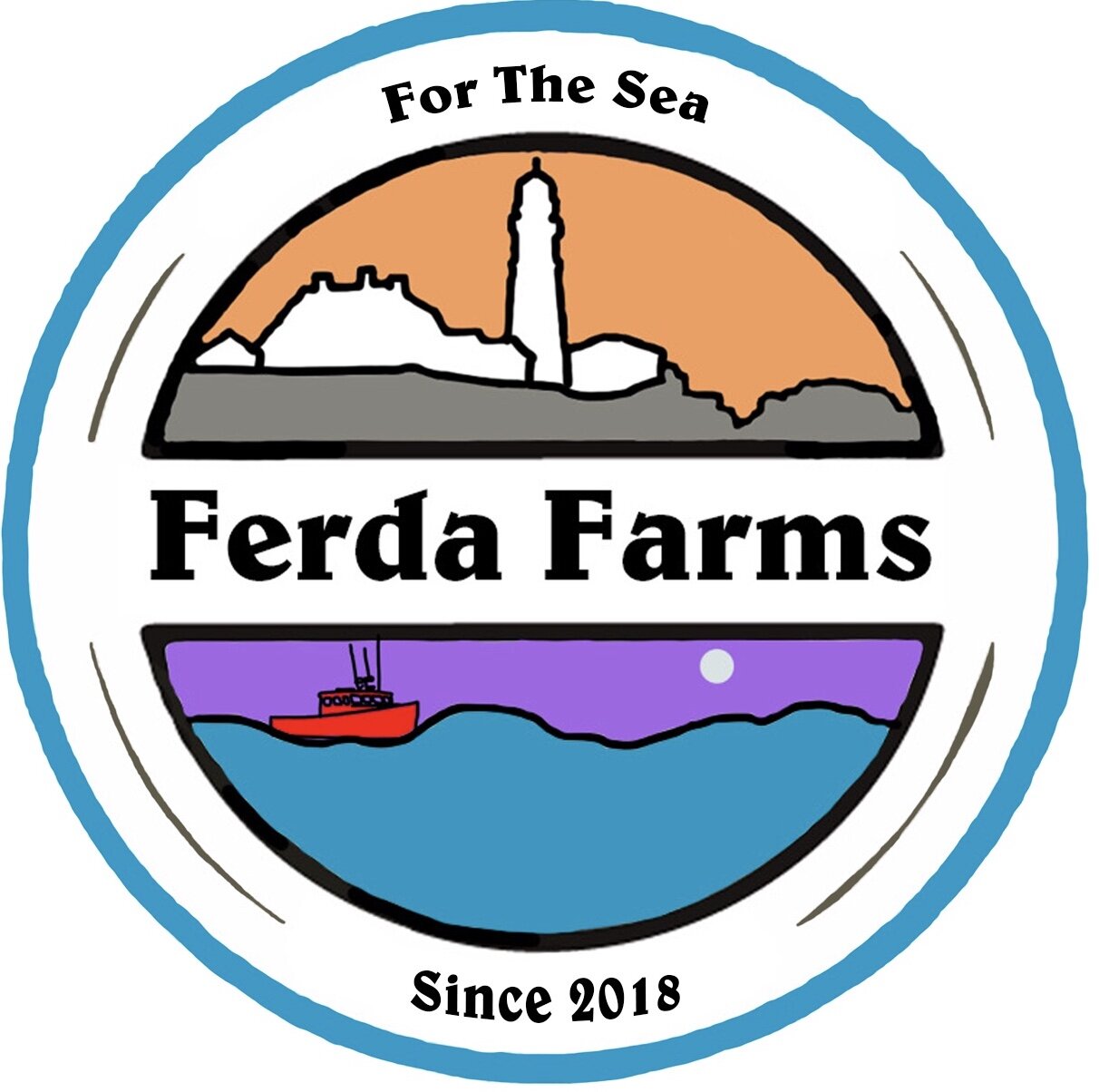

Check out this short film:
Farm On The River
We farm the sought after Bombazine oyster in the pristine, cold waters of the New Meadows River in Brunswick, Maine…
Have a listen and engage on the importance of community engagement and social license to operate in sustainable aquaculture.
Who We Are
Ferda Farms is a scaling oyster farm on the New Meadows River in Brunswick, Maine. Founded in 2018 by three high school seniors, we are committed to producing a high quality product and helping our environment, while promoting education and innovation within the industry.
Our Farm Operations
How are our oysters grown?
Our oysters are grown using multiple methods including floating cages, bottom cages, and bottom planting. Tumbled and sorted regularly to assure consistency, our product shows an impressive cup depth, and optimum shell strength. Throughout the lifecycle of the oysters, our floating gear is flipped and exposed to the air to reduce biofouling from algae, mussels, or other organisms which creates a cleaner product.
Where does our seed come from?
We purchase a blend of seed from Muscongus Bay Aquaculture and Mook Sea Farm.
How long to market
Our fastest oysters are ready for market in 16 months, while our slower growing oysters take a few years to be ready.
Only Oysters
Our crop is not limited to just oysters! We are currently experimenting with hard shell clams and kelp as well.
WHere can i buy your oysters?
To find out where our oysters are currently being served, check out our Instagram @ferda.farms for updates. Or visit our shop to get them direct!
“Not All Brine is Made the Same”

Represent Our Brand







Why is Aquaculture Necessary in Maine?
Many of Maine’s fisheries are in decline, and Maine’s fisherman are becoming older. Also, many land-based farming methods are not sustainable. They use harmful pesticides, or hormones and can damage the soil and other aspects of the environment. Aquaculture can revitalize Maine’s fishing industry, bringing jobs back to the state and help the environment.


